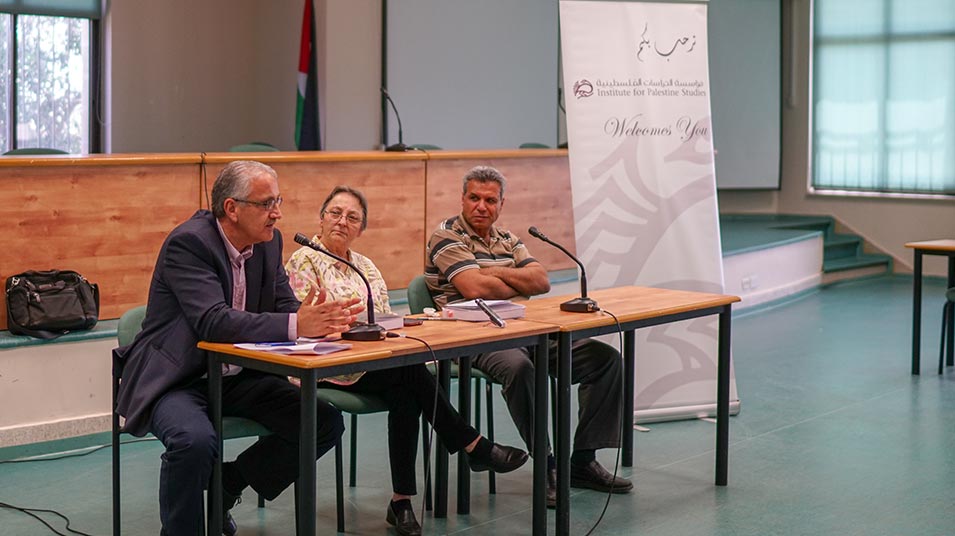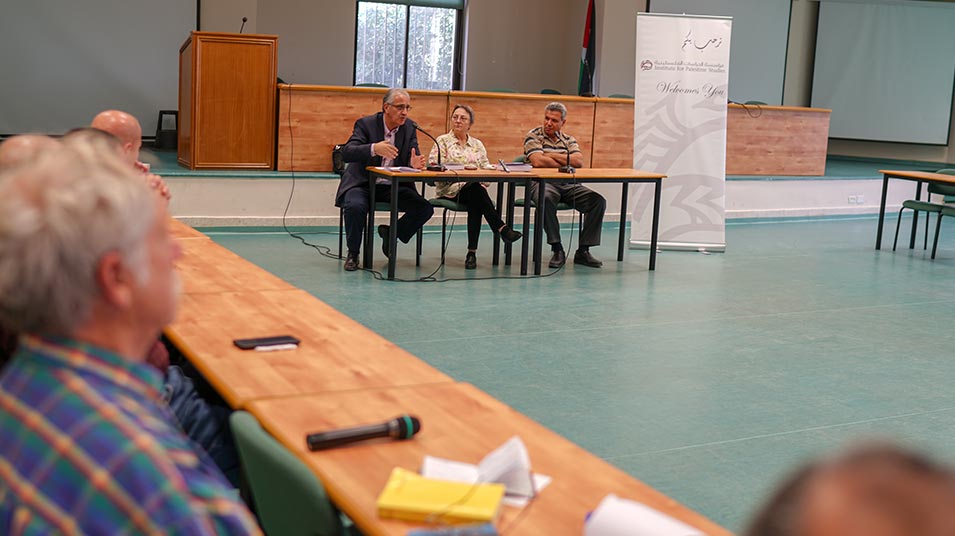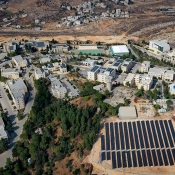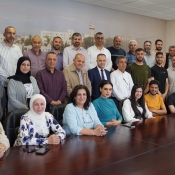Instrumental book on Palestinian society launched at Birzeit University
“It is one of the most valuable recent books that traces changes in the Palestinian society since 1948,” said Dr. Lisa Taraki, a professor of social sciences at Birzeit University, in the book launching ceremony of “Transformations of the Palestinian Society Since 1948: Between Loss and Challenges of Survival,” on May 17, 2018.
The book, authored by Dean of the Faculty of Arts at Birzeit University Dr. Majdi Al-Malki and co-authored by Hasan Ladadweh, an instructor in the Department of Social and Behavioral Science, diagnoses and analyzes the structural shifts that took place in the Palestinian community since the Nakba of 1948 by examining the colonial context that encroaches upon the integrity, identity, and foundations of the Palestinian society.
Taraki, in her welcoming remarks, highlighted the book’s unique attributes that grant it a place among the foremost references on Palestinian society and history.
“The book adopts a new model with regards to tracing the history of the Palestinian society. Most books only include studies of the Palestinian society only in 1967-occupied areas, but “Transformations of the Palestinian Society” historicizes the changes that occurred in the Palestinian society in all Palestinian areas, including 1948-occupied territories,” commented Taraki.
Taraki added that the book does not treat Palestinians as victims of an unjust occupation, but as freedom fighters.
“Another thing that the book does extremely well is references,” Taraki continued. “The book not only lists relevant works and studies with extreme detail, but also analyzes those works and presents a critical view of each and every one of them.”
Al-Malki, the book’s principal author, noted that the book is not a traditional analysis of the Palestinian society, but one that “looks at the many issues and events that have been taken for granted with a critical eye.”
“During the writing of this book,” Al-Malki remarked, “We avoided pitting the reader in theoretical disputes that require intensive knowledge, but they’re mentioned for re-readings and more-knowledgeable readers.”
Ladadweh, the co-author, mentioned that the book deals with the dynamics of the Palestinian society in dealing with colonialism, and traces how those tools changed.








